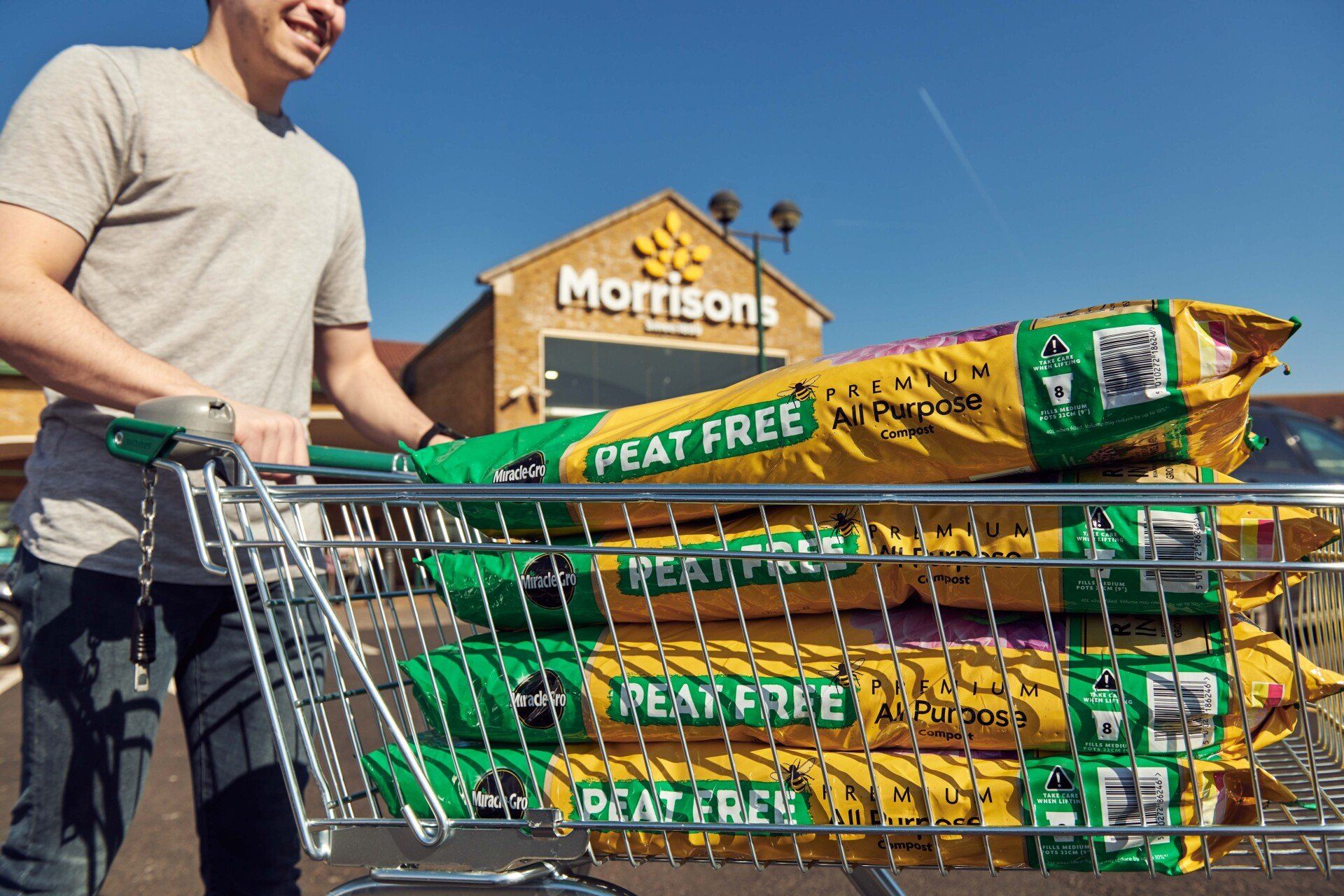Morrisons to switch to 100% peat-free compost
Morrisons | 22 March 2022
Industry Insights / Morrisons to switch to 100% peat-free compost
Morrisons will phase out peat-based compost at its 497 stores and 303 garden centres across the UK by the end of the year, to help customers to garden more sustainably.

More widely, the Government has called on UK retailers to ban the sale of compost containing peat by 2024,
to help tackle global warming.
Over two million bags
of compost are sold by Morrisons a year. In the place of peat, Morrisons is introducing a variety of sustainable composts for its customers. The range will include coir compost, which is made using the waste husks and fibres of coconuts that are a by-product from the food industry.
Peatlands currently occupy around 12 per cent
of the UK’s land area. When healthy they can store large volumes of carbon, with research showing they can hold up to 30 times
more carbon per hectare than a healthy tropical rainforest. They can also help to prevent floods and contribute towards biodiversity.
However, 80 per cent
of British peatlands have been lost or damaged. They have both been; drained for agriculture, forestry and construction; and, reduced in size by commercial peat extraction for horticulture. As a result these carbon sinks have released greenhouse gases accounting for five per cent of the UK’s total emissions. The Wildlife Trust has reported that the peat extracted for UK horticulture in 2020 alone could release up to 880,000 tonnes of CO2
over its lifetime. One of the ways in which peatlands can be restored is by ‘re-wetting’ or reinstating the natural flow of water and soil saturation.
From this month, Morrisons will be the first supermarket
to sell Coco Grow coir compost products. These compact one kilo and five kilo bricks - packaged in recyclable plastic and cardboard - are easily transported home. They can be turned into 15 and 75 litres of compost by just warm water, and are priced at £3.50 and £8.50
respectively. In addition to Coco Grow, Morrisons will also sell peat-free Westland, Richmoor and Miracle-Gro composts in 30 to 50 litre bags, priced between £3.50 to £6.00.
Dan Townend, Gardening Buyer at Morrisons, said: “More people are gardening and our research shows that customers also want to protect our natural habitats. Peatland is actually the country’s biggest natural carbon store and its removal is affecting the environment. Our new coir range is just as good as traditional composts - and means we’re using the natural waste materials from coconut growing to fertilise our gardens instead.”
Environment Minister Rebecca Pow
said: “I applaud this commitment as a hugely positive step towards a peat-free future for the UK’s gardening trade, ahead of our proposed ban on peat in the retail sector by the end of this Parliament. This bold move will help gardeners across the UK to make the sustainable choice and go peat-free - to protect our peatlands, cut carbon emissions, and safeguard our environment for generations to come.”
Morrisons move to 100 per cent peat-free compost is its latest initiative to reduce carbon emissions, following commitments such as being directly supplied by net zero farms in the UK by 2030, and to become net zero across its business by 2040.
A proportion of Morrisons indoor and outdoor plants now come in coir and non-peat composts, with reduced peat in others. Morrisons is also running a series of peat-free trials at its wholly-owned Lowlands Nursery to understand the best compost alternatives for growing plants.
For more information and to find a local Morrisons garden centre visit: https://my.morrisons.com.


